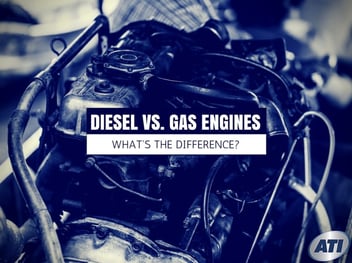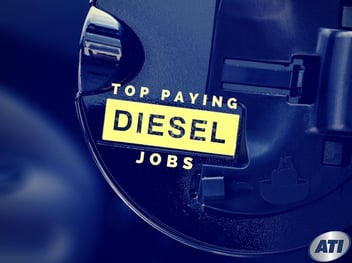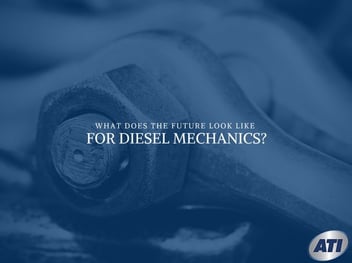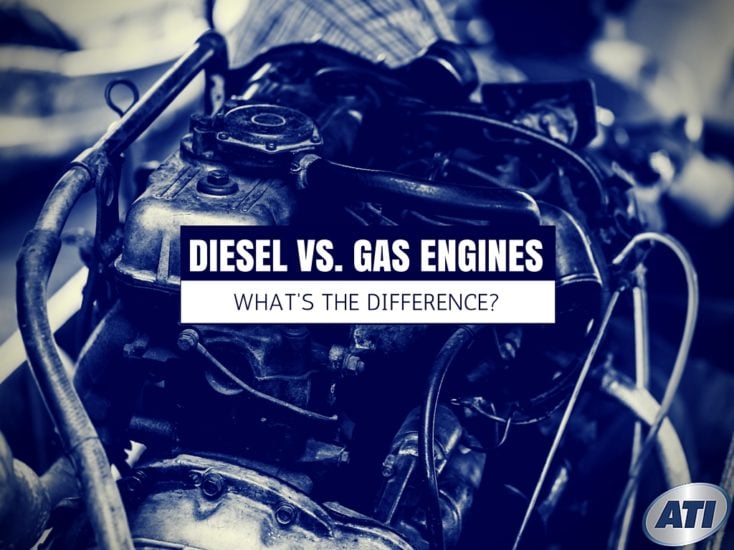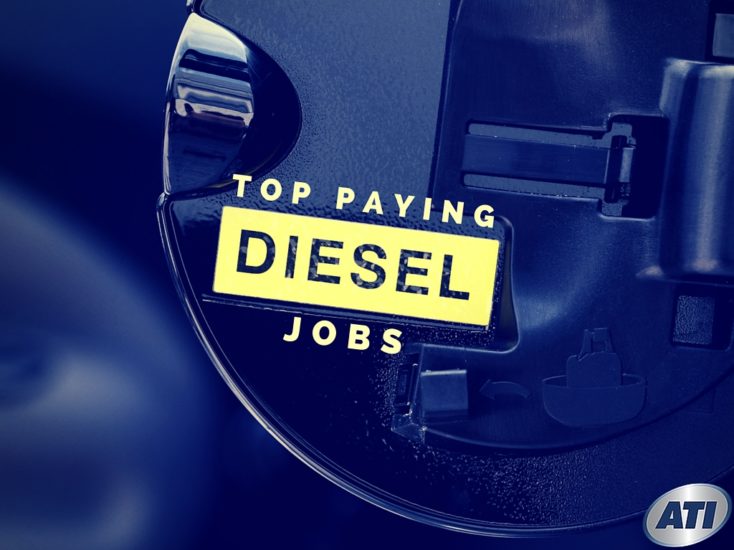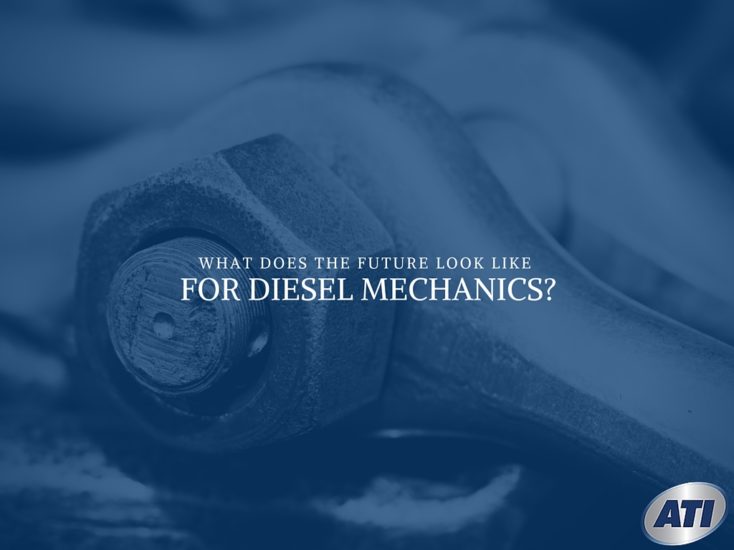What’s The Difference between Torque & Horsepower?
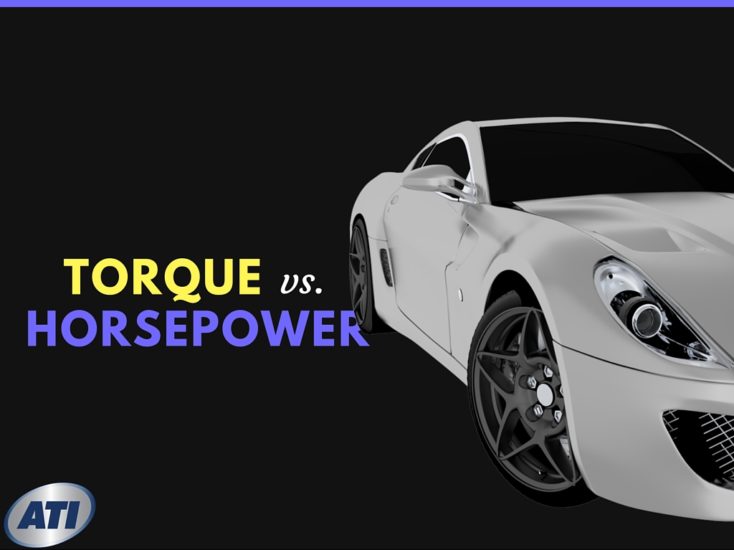
Understanding the science behind an engine lets you better understand how to keep them running longer and get the best performance. Cars have become increasingly complex, but the basics of learning about automotive performance still start with torque and horsepower. These two measurements often push models to the head of the class, but what is the difference between them?
What is Horsepower?
Horsepower is a unit of measurement designed to quantify the work an engine is doing. When the term horsepower was developed, horses were still one of the major transportation and work methods in use, but steam power was a rising force. Steam engine manufacturers needed a way to demonstrate the value of steam compared to horsepower. The calculations for a single horsepower are based on the amount of work a horse could do per minute. Of course, that varies by the horse and the task in question, so today, car manufacturers use a stabilized number as a representation. One horsepower is the equivalent amount of work that it takes to move 33,000 pounds for a distance of one foot in one minute.
What Does Horsepower Mean for Cars?
In a car engine, horsepower is continuous power. After the car gets up to speed, the horsepower keeps it there. Horsepower is the high end of engine performance. It doesn’t get the car off the starting gate quickly, but it does allow the motor to perform flawlessly at high speeds. More horsepower means a smooth ride after acceleration.
Where Does Torque Come In?
Torque is what allows a car to jump off the starting line like a rocket. Torque is the measure of how much force causes an object to rotate. Typically measured in pounds per foot, an engine’s torque value determines its acceleration. The average car buyer may not understand the difference, but if you are an enthusiast, you certainly do. According to Charles Hubbard with Lexus College, “A lot of people buy horsepower, when what they really want is torque.”
Exciting numbers like zero-to-60 in less than four seconds don’t happen due to horsepower. They happen when the car has enough torque to support that kind of rapid acceleration.
Going Beyond Basic Power
Even with an understanding of torque and horsepower, remember that cars are very sophisticated. High power coupled with a lot of torque doesn’t always mean a great driving experience. Low horsepower and modest torque can work well on the roads. Drivers almost never get to open up an engine fully, so a lot of power doesn’t help as much as you might think. For driving in congested conditions, a better suspension system, solid handling, and better stopping power all move toward the front of the list.
Add in new electric cars and the entire face of car buying may change. Electric cars don’t have torque. They can immediately accelerate to top performance with no drag on acceleration. Essentially, electric cars are quick (the Tesla Roadster goes from 0-to-60 mph in just 3.7 seconds) while traditional combustion engines are fast. Electric cars accelerate more quickly, but their high speeds can seem sluggish compared to other vehicles. Most electric cars top out at about 125 mph, but with very rapid acceleration, they merge onto the highway and perform well for consumers. Regular cars may speed up a little more slowly, but they can hit speeds that turn them into a rocket along the ground.
Cars: Hobby or Professional
If cars are a fascination or you enjoy getting under the hood to explore, you might want to think about turning your hobby into a career in automotive repair. Today’s car manufacturers are adding more complex systems to every car, making automotive maintenance a challenge. Electric cars bring in a whole new host of maintenance issues, along with a new parts list. If you would like to be able to keep any car turning over smoothly, going to school for automotive engineering might be the right path for you.
Make Cars Your Career: Become an Auto Tech
If you want to be part of the automotive revolution, consider a career in automotive engineering. You can earn an Automotive Technology with High Performance Engineering and enjoy time spent fiddling around under the hood. ATI offers a program to help you learn more about the maintenance and repair of virtually every major system in a modern automobile. If you’re ready to get greasy, contact ATI today at 800-468-1093 or request information on our website today.
Finished the program and got a spot in the BMW STEP program because of the school. Because of ATI I have a job with a major manufacturer. Thank you!
Posted by Jeremy Fisher on Friday, August 14, 2015
DISCLAIMER – Advanced Technology Institute (ATI) makes no claim, warranty or guarantee as to actual employability or earning potential to current, past or future students or graduates of any educational program offered. The Advanced Technology Institute website is published for informational purposes only. Every effort is made to ensure the accuracy of information contained on the AUTO.edu domain; however, no warranty of accuracy is made. No contractual rights, either expressed or implied, are created by its content.
Gainful Employment Information – Automotive Technology with Service Management (AOS)
Gainful Employment Information – Automotive Technology, Diploma
For more information about Advanced Technology Institute or any of our programs click here: http://www.auto.edu/ or http://ow.ly/VoydP.
Industry Knowledge
Welcome to the Advanced Technology Institute's Blog, your resource for industry insights and discussions on technologies shaping the future of automotive, heavy vehicle, hvac, welding, and other related career paths.
Explore how ATI's curriculum and hands-on learning opportunities can propel your career in the tech-driven world.

